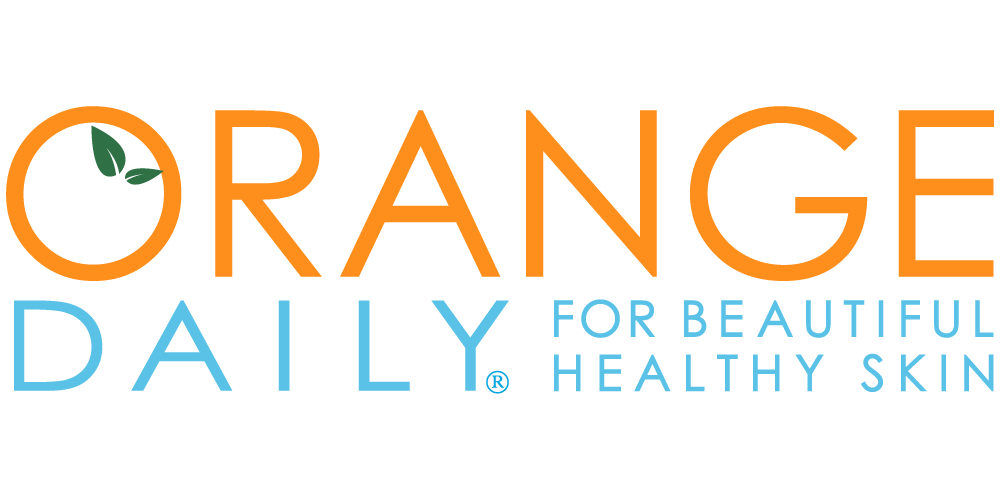54. Topical Vitamin C for Acne: How much? How often?

Did you know that acne is the most common skin condition in the United States affecting as many as 50 million Americans each year? If you’re one of those 50 million, it doesn’t matter whether your breakouts occur occasionally or if it seems to be a constant frustration; there are safe and natural ways to treat current breakouts while preventing future ones. Clear and healthy-looking skin is possible no matter your age or skin care history. In this article, we’ll explore the safety and efficacy of using a vitamin C serum for acne.
What Causes Acne?
Mention acne and most people think of teenagers, but that isn’t always the case. Acne also affects 25% of the adult male population and up to 50% of the adult female population. Many theories have been presented as to the root cause of acne including poor diet and poor hygiene. While these may affect a person’s overall health and appearance, they are not the main contributing factors to acne breakouts in teens or adults.
The four main culprits behind acne breakouts are bacteria, inflammation, excess oil production, and hair follicles and pores that become clogged with oil and dead skin cells. Hair follicles are connected to oil glands, making it easy to become inflamed or infected with bacteria resulting in raised red spots with a white center commonly known as whiteheads, pimples or “zits.” Blackheads appear when open pores become clogged with oil and bacteria, turning brown when exposed to the air.
Acne Triggers
Okay, so we know that oil and bacteria lead to inflammation and clogged pores and hair follicles, and that process results in what we commonly refer to as acne. But what are the triggers that cause the oil production and inflammation in the first place? While we noted that diet may not directly cause acne breakouts, a poor diet won’t improve acne either and may act as a trigger. It’s best to consume a diet filled with fresh fruits and vegetables, limited lean meats and healthy oils, while eliminating processed foods.
Stress may not directly cause acne either, but it may make it worse. It seems the two most notable triggers are hormones and medications. You may want to discuss other possibilities with your doctor if you take medications that contain testosterone, lithium or corticosteroids as they have been connected to acne breakouts. Hormonal changes in adolescents stimulate the oil glands to produce more sebum, enabling acne, and similar hormonal changes in midlife can affect men and women as well.
How Topical Vitamin C Works
Your skin is composed of three layers: the epidermal or top layer that we see, the dermal layer just below the surface of the epidermis, and the subcutaneous layer below the dermis that exists in the form of fatty tissue that supports the top layers. Skincare products containing L-ascorbic acid, the most readily absorbable form of topical vitamin C, work deep into the skin’s layers to promote health and healing from the inside out.
We know that vitamin C is a powerful antioxidant that works to neutralize free radicals and keep our bodies healthy. When topical vitamin C is applied consistently in the morning and evening, our skin can reap those benefits directly where needed. Because the antioxidant is well-absorbed, you will also reap the rewards of reduced inflammation, increased collagen production, a more even skin tone, fewer lines and wrinkles, increased hydration, and an overall more vibrant appearance.
Benefits of Using a Vitamin C Serum for Acne
While the benefits of using a vitamin C serum for acne are many, we’re focusing on the main three:
Accelerated Healing
A topical 10% vitamin C serum can penetrate the skin layers to promote healing from the inside out. When your skin holds ample amounts of this powerful antioxidant from consistent daily application of topical vitamin C adding to the “reservoir effect,” collagen production is increased, dead skin cells are sloughed off faster and new cells move to the surface sooner. All of this results in faster healing and a clearer complexion and could possibly even reduce the appearance of acne scars.
Reduced Inflammation
A hallmark of acne breakouts is inflammation causing redness and swelling. As an antioxidant, topical vitamin C works to calm the redness and swelling to reduce inflammation.
Improve Hyperpigmentation
Unfortunately, healing from past breakouts can result in hyperpigmentation, red or dark spots. Melanin is the pigment responsible for the darkness of your skin. Topical vitamin C works to inhibit the production of the enzyme tyrosinase which is responsible for melanin production. The ability to reduce melanin production combined with the benefits of accelerated healing can lead to a noticeable reduction in hyperpigmentation resulting in a clearer complexion.
By using a topical vitamin C regimen just twice a day for 60-90 days, applying 10% serum and moisturizer to affected areas – sparingly but consistently – you will give your skin the optimal nutrients needed to reduce new acne breakouts and possibly improve appearance from past ones. Try topical vitamin C today for better overall skin health.
Contact us here for questions or comments.

